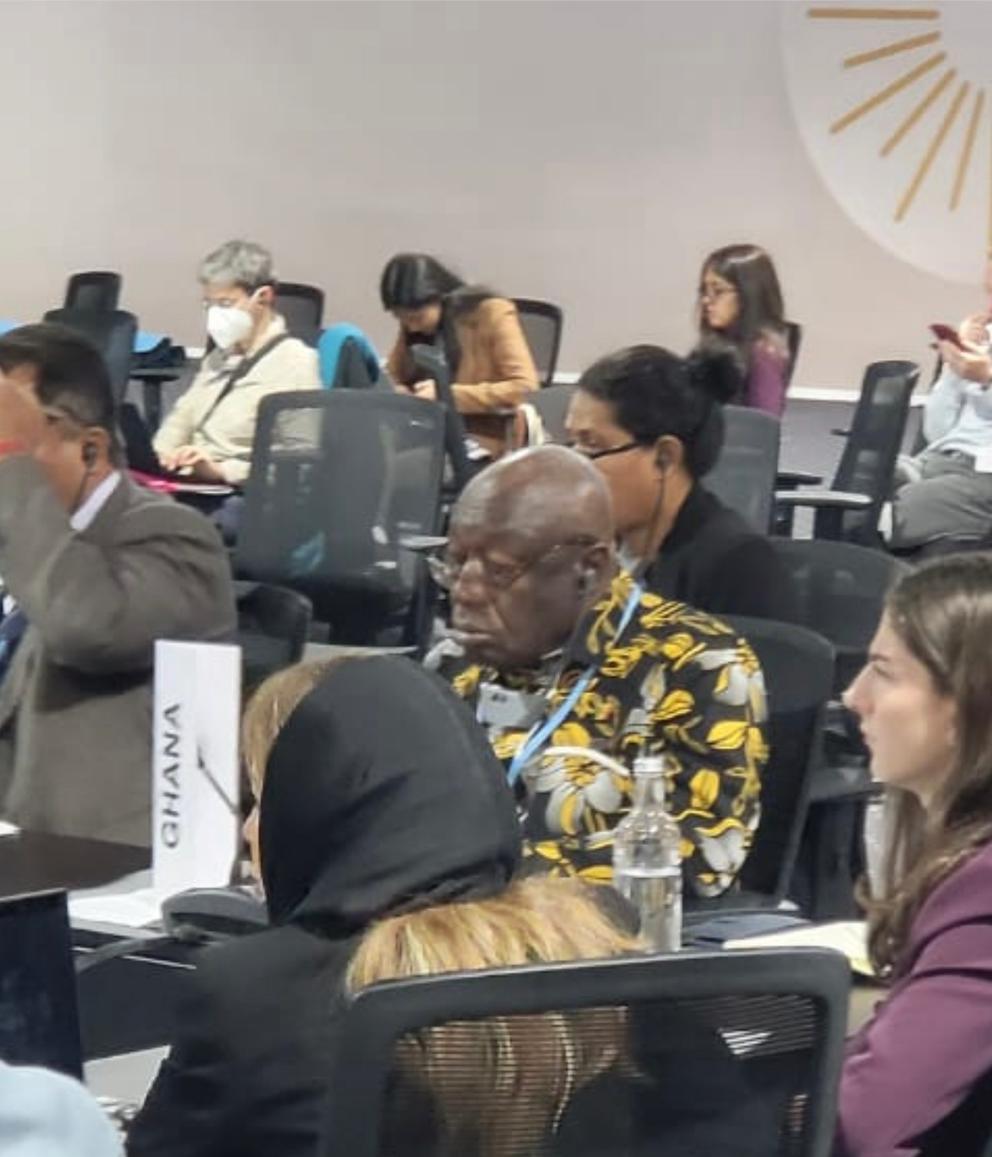5th High-Level Ministerial Dialogue on Climate Finance
14 November 2022
15:00-18:00
Sharm el-Sheikh, Egypt
Thank you for giving me the floor
It is with a great sense of honor that I speak for Ghana which now holds the Presidency of the Climate Vulnerable Forum, the “CVF”, in the 5th High-Level Ministerial Dialogue on Climate Finance.
Ghana is glad to be here today, as we meet to advance one of the CVF’s shared priorities for COP27, climate finance. The recently adopted ‘Accra Kinshasa’ Communiqué of the CVF highlights key shared priorities developed with consultation with the membership of the Forum and one of the key priorities is finance.
Climate change has eliminated one-fifth of the wealth of the CVF countries over the last two decades. Initial evidence shows that these countries would have been 20% wealthier today had it not been for climate change and the losses it incurred for poor and vulnerable economies.
The Delivery Plan Progress Report released by Canada and Germany exposes the disparities in developed countries’ climate finance efforts. Developed countries are still failing to meet their commitment to mobilize US$100 billion in climate finance annually for developing countries, a promise made over a decade ago that was meant to be fulfilled by 2020. The transparency in this report is a welcomed effort, but it is not enough. At a time when developing countries urgently need resources to build resilience, developed nations are escaping their obligations. Developed countries need to step up, stop dodging scrutiny, and work to rebuild trust with developing
countries delivering on their climate finance commitment Closing the gap is an important step to restoring trust in climate finance.
The New Collective Quantified Goal on Climate Finance, must adequately be needs based in terms of scale and volume and respond to the needs of the most vulnerable developing countries, including by not increasing indebtedness. The NCQG must also consider a high and growing emphasis on grant-based funding for adaptation for developing countries particularly vulnerable to climate change with the NCQC to scale up climate finance to developing countries and consider existing obligations of parties under the UNFCCC, learning from the experience of the as yet unfulfilled $100 billion joint climate finance mobilization goal.
Access to finance should not be a barrier to taking climate action now. Climate finance effectiveness has far to go, beyond a Delivery Plan for the $100 billion of annual balanced climate finance, and too often the victims of climate change do not have access to financial resources. Access to climate finance should be streamlined and facilitated particularly for vulnerable developing countries.
We are also asking to secure a Standalone “Implementation Plan” of the COP26-agreed doubling in international finance for adaptation from developed countries by 2025 to enhance transparency, predictability, and accountability and to prioritize a high and increasing emphasis on grant-based funding for adaptation for frontline communities and economies. The UN’s latest Adaptation Gap Report released ahead of COP27 shows that developing works need a 5×10 increase in financial help to adapt to climate change. Climate Justice must be served by bigger and better pledges of finance from the richest countries.
The scale of destruction we are witnessing is unprecedented and is occurring with a frequency that leaves little room for the most vulnerable to adapt or recover. For poor and vulnerable nations across the globe, climate catastrophe is becoming a permanent reality. Communities on the front lines experience the same increasing number of unprecedented extreme weather events seen globally. That is why the CVF and V20 are calling for the establishment of a dedicated international funding commitment and mechanisms to address climate change loss and damage.
If developed countries continue on this path of not fulfilling their commitment to adaptation and mitigation, the demands for more finance are to come.
Excellencies,
The CVF is united in the face of adversity by our vulnerability. We stand together at the very frontline of the most rapid change of the Earth’s climate in history. Our vulnerability is also one of our greatest strengths. Our communities are finding innovative ways to adapt to climate change. Our global leadership is resulting in significant progress at the global level. Much of the progress of climate change would be impossible without our efforts. We are leading, and for that, we should be proud.
Together, we will move from vulnerability to prosperity. Together, our voices will resonate around the world.
Thank you all for your attention, and I wish you all a successful dialogue.

